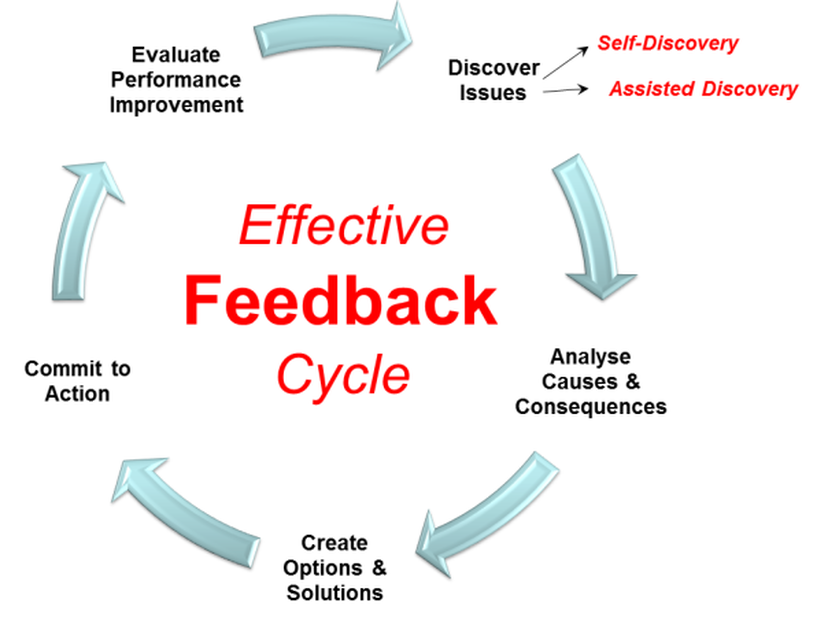| Early to Rise || July 2, 2018 |
| By Craig Ballantyne |
| I’ve been broke. I’ve been a drunk. I’ve been a jerk. I’ve had social anxiety so bad that I would go to seminars and request a hotel room on the lowest floor possible so that I didn’t have to take the elevator with strangers. That all changed thanks to a simple feedback cycle that has made me “normal,” richer than I ever thought possible, and the owner of my dream business. Today, I rarely consume alcohol, and when I do, I can always stop at one drink. When I ride in elevators, I greet everyone that enters and sometimes even tell jokes to strangers. People who knew me 10 years ago can’t believe how much I’ve changed. But enough about me. Here’s the good news for you: There's one tool I used to change my life, and it can change yours, too. It's called the Effective Feedback Cycle:
But before you dive in with both feet, you first must accept that you aren’t perfect. You have to put your ego aside. As high performers, we have an unfailing drive within us to move forward, to improve, to grow. While that’s a very positive quality, it can also lead us to shove problems under the rug—just so we can keep our momentum going. That’s why we all need to regularly take a deep breath and examine our Effective Feedback Cycle. I didn’t create this cycle, but it’s a simple, highly visual way to move from the recognition of a problem through feedback and resolution. Let’s walk through each step in the cycle, using myself as an example. You can use these same steps to help you identify and solve your own problems—both personal and professional. 1. Discover the problem/issueWithout this initial step, the rest of the cycle doesn’t work. In fact, there’s no point in having a feedback cycle if you’re unwilling to see your own shortcomings. I recommend two ways to dive into this. The first is via self-discovery. This often takes the form of meditation, focusing on negative emotions and/or the problem itself. If you focus on the problem—instead of running away from it—you will likely be able to clearly define what it is. If, however, you’re completely lost, meditation can also guide you to the root of negative emotion. By removing external distractions and spending 5-10 minutes in a quiet space lingering with your negativity, you will uncover a lot of the triggers and root causes. The key is to “face and follow”—face the emotion and follow the triggers that make it worse or better. Several of these short meditation sessions will reveal much about what your problem actually is. Self-discovery, however, is not the only path to defining a problem. An outside perspective is always helpful—which is why I always advocate that high performers hire a coach sooner rather than later. An attentive coach will be able to see shifts in your mood and behavior, and even recognize your problems before you do. Their perspective and experience is invaluable, so be sure you hire someone who is willing to be upfront and honest about what they see. I've long practiced meditation, but I fully admit it's only part of what I need for clarity. Years ago, I hired a coach to "show me the mirror"—reflecting my faults, insecurities, and weaknesses back to me so I could finally see them clearly. It wasn't fun, but it was absolutely necessary for me to figure out a path forward. |
| |
| High Performer Wisdom of the Day: “Life isn’t about finding yourself. Life is about creating yourself.” —George Bernard Shaw Want to help us improve? Take this quick 2-minute content survey! |
 Get your tickets now to the 2018 Perfect Life Retreat! Get them here >>> |
| 2018 © Early to Rise Publishing – All Rights Reserved |
